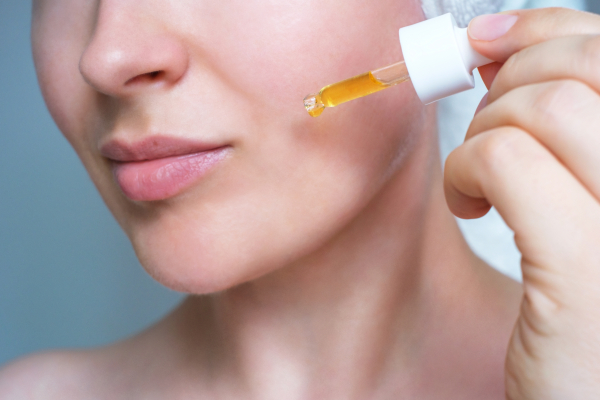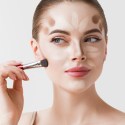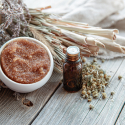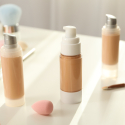Glycolic Acid in Skincare: Benefits, Uses, and How to Incorporate It Into Your Routine
 Glycolic acid has become a popular ingredient in skincare, revered for its ability to transform skin texture and appearance. This alpha hydroxy acid (AHA) is derived from sugarcane and is known for its exfoliating properties, making it a key component in many skincare routines aimed at achieving smoother, more radiant skin.
Glycolic acid has become a popular ingredient in skincare, revered for its ability to transform skin texture and appearance. This alpha hydroxy acid (AHA) is derived from sugarcane and is known for its exfoliating properties, making it a key component in many skincare routines aimed at achieving smoother, more radiant skin.What Is Glycolic Acid?
Glycolic acid is one of the smallest molecules in the AHA family, allowing it to penetrate the skin easily and deeply. Its primary function in skincare is to exfoliate by breaking down the bonds between dead skin cells, encouraging them to shed and revealing the fresher, healthier skin beneath.
Benefits of Glycolic Acid in Skincare
Incorporating glycolic acid into your skincare routine offers a variety of benefits, making it a versatile ingredient for many skin concerns.
Exfoliation and Skin Renewal
Enhanced Exfoliation: Glycolic acid helps in removing the outermost layer of dead skin cells, promoting a smoother and more even skin surface.
Accelerated Cell Turnover: By speeding up cell turnover, it reveals newer, brighter skin and helps reduce the appearance of fine lines and wrinkles.
Improved Skin Texture
Smoother Skin: Regular use of glycolic acid can result in a noticeably smoother skin texture, as it helps to diminish rough patches and unevenness.
Minimized Pores: Glycolic acid can also reduce the appearance of large pores by keeping them clear of debris and dead skin cells.
Brightening Effect
Fading Hyperpigmentation: Glycolic acid is effective in lightening dark spots and hyperpigmentation, leading to a more even skin tone.
Glowing Skin: With consistent use, your skin may achieve a healthy, luminous glow due to the removal of dull, dead skin cells.
How to Use Glycolic Acid in Your Routine
Incorporating glycolic acid into your skincare routine should be done with care, especially if you’re new to this powerful ingredient.
Choosing the Right Concentration
Low Concentration for Beginners: If you’re new to glycolic acid, start with a product containing a lower concentration (around 5-10%) to allow your skin to gradually acclimate.
Higher Concentrations for Experienced Users: Those who are accustomed to glycolic acid can explore products with higher concentrations (up to 20%) for more pronounced effects.
Application Tips
Frequency of Use: Begin by using glycolic acid products 1-2 times a week, and gradually increase the frequency as your skin builds tolerance.
Nighttime Application: It’s best to apply glycolic acid at night, as it can make your skin more sensitive to sunlight. Always follow up with sunscreen during the day.
Combining with Other Ingredients
Avoid Over-Exfoliation: Be cautious when combining glycolic acid with other exfoliating ingredients like retinoids or physical scrubs to prevent over-exfoliation and irritation.
Pairing with Moisturizers: After applying glycolic acid, use a hydrating moisturizer to soothe the skin and prevent dryness.
Potential Side Effects and Precautions
While glycolic acid is generally safe for most skin types, it’s important to be aware of potential side effects, particularly if you have sensitive skin.
Possible Irritation
Skin Sensitivity: Glycolic acid can cause redness, stinging, or peeling, especially when first introduced to your routine. Start with a lower concentration to minimize these effects.
Sun Sensitivity: The exfoliating nature of glycolic acid can increase your skin’s sensitivity to the sun, making sun protection crucial.









